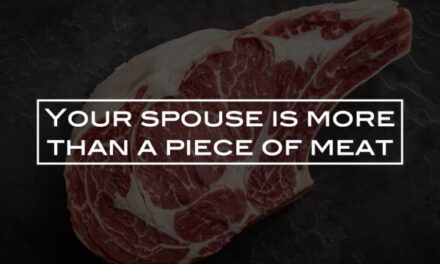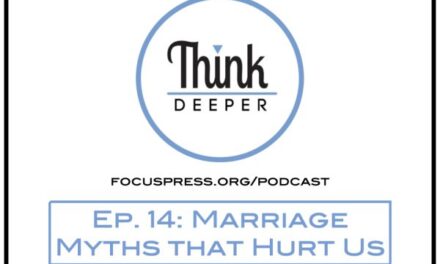One of the most sobering passages in all of Scripture comes in Matthew 7:21-23. As Jesus wrapped up the Sermon on the Mount, He pointed out that there will be many (not just a few, not just some) who will get to the Judgment, think they’re on their way in, and be turned away at the door.
I desperately do not want to be in that “many.” I think it’s fair to assume you don’t want to be, either. How do we stay out of that group, then?
The first step is to read the verse with this realization: “He could be talking about me.” The people Jesus will condemn in this section are quite clearly those who will never see it coming. They are people who will call Jesus “Lord, Lord,” which tells us He wasn’t talking about the world, i.e. those who never claimed Him. They are also people who can point to things they did in His name – prophesying, casting out demons, performing miracles – which tells us He wasn’t talking about nominal Christians whose religion doesn’t affect their life at all.
If you’ve heard much preaching in the churches of Christ, you may have heard this verse explained as being about the denominational world, that they claim Jesus as Lord but haven’t obeyed Him on certain doctrinal points and haven’t “done the will of My Father who is in heaven.” While I don’t mean to downplay doctrine, I don’t believe that’s what Jesus had in mind, either, as we’ll cover in the next point. Ironically, it’s that very kind of thinking that could put us in position for a Judgment Day surprise. “Lord, Lord, didn’t we worship a capella, and didn’t we take communion every Sunday, and didn’t we have male leadership?” That’s precisely why they’ll be caught off guard: they were so confident in their external performance that they didn’t consider they might be missing the point.
The second step is to understand the kind of person Jesus has in mind.
In the broader context, we find ourselves at the conclusion of the Sermon on the Mount. Starting in 7:13, Jesus began His conclusion by painting the picture of two paths; the broad, and the narrow. He then went on to talk about those who bear good fruits and those who bear bad fruits, then gave the “Lord, Lord,” section, before finishing on the wise man and foolish man and their foundations based on how they responded to His words. To sum up, those on the narrow path will be those who bear good fruits, those who do the Father’s will, and those who hear Jesus’ words and obey.
Of these points, I want to focus most on the bad and good fruits, as that’s a concept that shows up repeatedly in the Gospels. Before Jesus began His ministry, John was preaching a message of repentance and told people to bear fruits in keeping with repentance (Matthew 3, Luke 3). He told the tax collectors to be honest in their collection, the soldiers to avoid using their power corruptly, and the general populace to give of what they had to those in need. In other words, don’t just say you’ve repented. Let your life show it. In John 15, Jesus told the disciples that if they abided in Him, they would bear much fruit, but if they didn’t bear fruit they would be cut away and thrown into the fire. This fiery judgment for non-fruit bearing branches is a theme that pops up in each of these passages. Jesus expects to see tangible results, and if they aren’t there, the branch goes into the incinerator.
So, who will be the kind of person who gets turned away by Jesus? The kind of person who says they know Him but shows little evidence that they do.
The third, and final step, is to stop relying on our own works at all.
That’s the thing about fruit – it’s not an action. It’s a result. Fruit appears on a tree as an outward result of all the good things happening inside the tree. With the proper sunlight and feeding, a fruit tree will naturally produce fruit. So, when Jesus puts such a high premium on bearing fruits, He’s not telling you to try really hard and maybe it’ll be good enough. He’s saying that if you walk with Him and abide in Him, your life will naturally show it. Notice those whom He will turn away will be told “I never knew you.” Who is the kind of person who produces fruit? The kind of person who knows Jesus, and He knows them.
That’s the beauty of a Gospel that is not based on salvation by works. Even though passages like Matthew 7:21-23 should make us sit up straight and pay attention, they don’t mean we have to walk around in constant fear of what He’s going to say to us at the Judgment. We can know we are saved (1 John 5:13), and it’s not because of ourselves. It’s because of Him, and the proof we have is the fruit He is producing in our lives.
That leaves the question to you: does your life show the kind of fruit that proves you know Jesus? What will you point to when you stand before Him on that day? Will you point to your own goodness, your own doctrinal correctness, your own works? Or will you point to the cross, and to the fruit that Jesus brought about in your life? Will He say “I never knew you?” Or will it be like meeting a faithful long distance friend after years of waiting to see each other?
In either case, you can know. Don’t get surprised at the Judgment.





